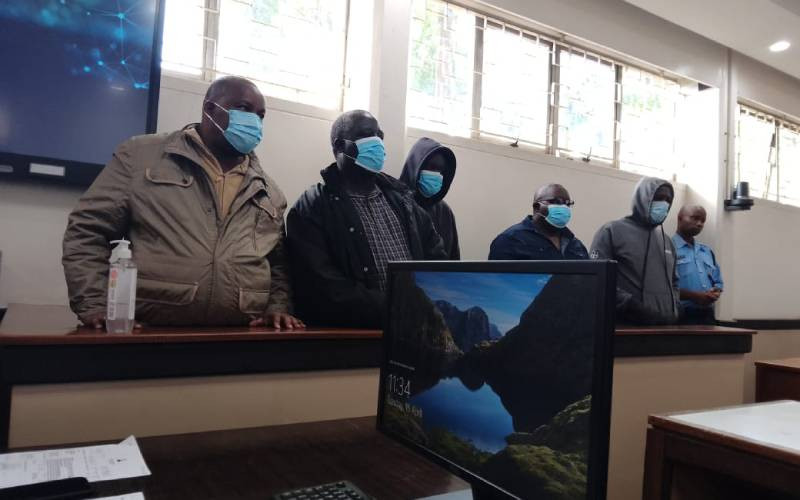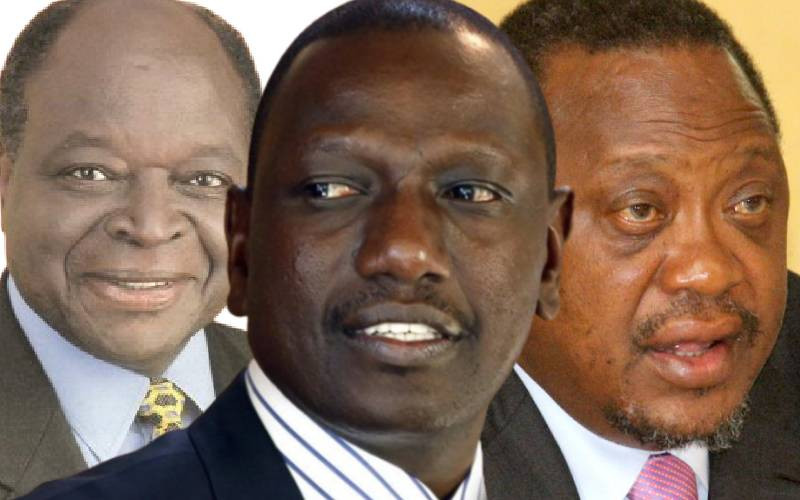In Chinua Achebe’s seminal novel, No Longer at Ease, Obi Okonkwo returns to Nigeria after three years of university education in the UK to find the public service rotting under the weight of corruption. Educated Africans have begun taking up posts that were previously the preserve of European expatriates. They expect — and are expected — to live like Europeans. This presents huge financial pressures. Many succumb to temptations to become corrupt. The outcomes are not so pleasant.
The theme of power and corruption is recurrent in pioneering African writing. Ngugi wa Thiong’o has abundantly addressed it in Devil on the Cross as in Petals of Blood and very powerfully in the short story “The Mubenzi Tribesman.” Ayi Kwi Armah deals with it in Beautiful Ones are Not Yet Born as does Wole Soyinka in Kongi’s Harvest. And there are many others. Why did this question trouble African writers so early in the life of our new nations and states? Would it appear that the thunderstorm of corruption accosted us just before we got into the house of freedom? If it did, did it intensify after we got in?
While Achebe’s Obi has been critical of corruption in the public service, domestic financial challenges push him the same way. It is always a matter of the desire to satisfy impossible lifestyles in societies that adore grotesque wealth and lavish living. This is regardless of the means whereby the wealth has come. People may complain against corruption. However, they gloat and yearn for corruptly earned things. It should not surprise us that a recent survey in Kenya has revealed that half of the youth think that wealth is good, regardless of the source.
When I was a boy, I used to hear my President say on radio that he had killed an elephant. He invited everybody to bring out their knife. He went on to say that even independence had not come on a silver platter. We had grabbed it. Do we seem to have taken this literally? If we grabbed independence, we were now talking about eating the fruits of independence. And the fruits were to be grabbed. Hence our youth who have closely watched older generations now say that stealing is good. Their dream is to become blatant thieves. But do we judge them harshly? We could say, what kind of youths are we raising? Yet is it the youth or is it the role model?
Eight years ago we frequented the same sports club with Chief Justice Willy Mutunga. We would spend the intervals in our training reflecting about our country. “I have given up on my generation,” Mutunga told me one day, “Maybe your generation could save us. Continue writing.”
Mutunga later left his job at the Ford Foundation for his present job. It was an opportunity to have another fighting chance. For, Mutunga had been one of our teachers at the University of Nairobi in the ‘70s and ‘80s. In the absence of legal opposition, the university community found itself filling up the void. The government pushed the academic community into submission by detaining people like Mutunga. He would later work quietly with civil society to address issues of probity and accountability in government and governance. Today he stands on the verge of retirement from the topmost office in the Judiciary. It has been a tour of duty that he will want to reflect about long after his retirement.
The CJ prepares to retire when the Judiciary is at a most critical crossroads. Efforts to reform this institution have not always been well received. Indeed, there are those who have been outright cynical and full of intimidating mockery. When the issue of Justice Tunoi came up a couple of days ago, the political class in the National Assembly fell over itself with mirth. Taking the cue from the Leader of Majority, they went out of their way to scorn the CJ and the Judiciary.
While I have no rigorous knowledge of what goes on in the Judiciary on a day-to-day basis, my layman citizen’s perception is that we have by and large a profoundly reformed and reforming institution. Time and again, the Judiciary has stood its ground against the Executive and the Legislature alike. We have heard them accuse the Judiciary of “activism” and “frustrating them” in their work. The two branches of government have traditionally done extra-legal things — perhaps even felonious things — and got away with them. They have found this difficult to do under a reformed and reforming Judiciary.
In 1962 Prof Rene Dumont wrote the book False Start in Africa. He thought that Africa’s development was misdirected. Little did he know that a continental passion for stolen things was going to be the biggest challenge. The independence generation arrived with sharp craving for the good life at no matter whose expense. It plunged into things headlong, gathering everything on the way, regardless of whose they were. It planted the seed of grabbing every money available. It has matured.
The next generation — Willy Mutunga’s — followed suit. It arrived with tailor-made omnivorous habits. Yet it also came with hope. People like Mutunga are an aberration, a stumbling block to the raiders’ class. Together with kindred academics, they opened our eyes to the malaise. But whenever they got the chance, they joined the eating ranks and went silent. Some became apologists for decadent systems.
My generation has not done any better. We loot unashamedly. My children’s generation has been watching. To paraphrase Franz Fanon, it is up to them now to discover their true mission. Having done so, they can choose to fulfill it or betray it — the way the rest of us have done. If they choose betrayal, we can only pray there will still be a Mutunga — a remnant seed with the still small voice in a rotten generation. The Mutungas keep our hope alive, regardless that they are ridiculed.
 The Standard Group Plc is a
multi-media organization with investments in media platforms spanning newspaper
print operations, television, radio broadcasting, digital and online services. The
Standard Group is recognized as a leading multi-media house in Kenya with a key
influence in matters of national and international interest.
The Standard Group Plc is a
multi-media organization with investments in media platforms spanning newspaper
print operations, television, radio broadcasting, digital and online services. The
Standard Group is recognized as a leading multi-media house in Kenya with a key
influence in matters of national and international interest.
 The Standard Group Plc is a
multi-media organization with investments in media platforms spanning newspaper
print operations, television, radio broadcasting, digital and online services. The
Standard Group is recognized as a leading multi-media house in Kenya with a key
influence in matters of national and international interest.
The Standard Group Plc is a
multi-media organization with investments in media platforms spanning newspaper
print operations, television, radio broadcasting, digital and online services. The
Standard Group is recognized as a leading multi-media house in Kenya with a key
influence in matters of national and international interest.









